Why now is the time to visit Busan, South Korea’s ‘second city’
The Best of Busan, South Korea
Editor’s Note: This CNN Travel series is, or was, sponsored by the destination it highlights. CNN retains full editorial control over subject matter, reporting and frequency of the articles and videos within the sponsorship, in compliance with our policy.
Known for its fiery cuisine, cutting-edge technology and hefty pop-cultural output, South Korea is currently enjoying its moment in the spotlight.
While the capital, Seoul, gets the lion’s share of attention, the country’s second city, Busan, has emerged from the big town’s shadow to become a worthy destination of its own.
This vibrant seaside metropolis is home to 3.5 million people and draws visitors from Korea and beyond, with travelers lured by its sandy beaches, lively street markets, fresh seafood, cool museums and quirky hillside neighborhoods, as well as its numerous celebrations and special events, including Asia’s largest film festival.
Long off the radar of most travelers outside of South Korea, the secret is now out, and travelers are flocking to this hip, historic and very delicious town to savor its splendors.
There has never been a better time to go, so here are some things not to miss during your visit to Korea’s premier seaside city.
Haeundae Beach
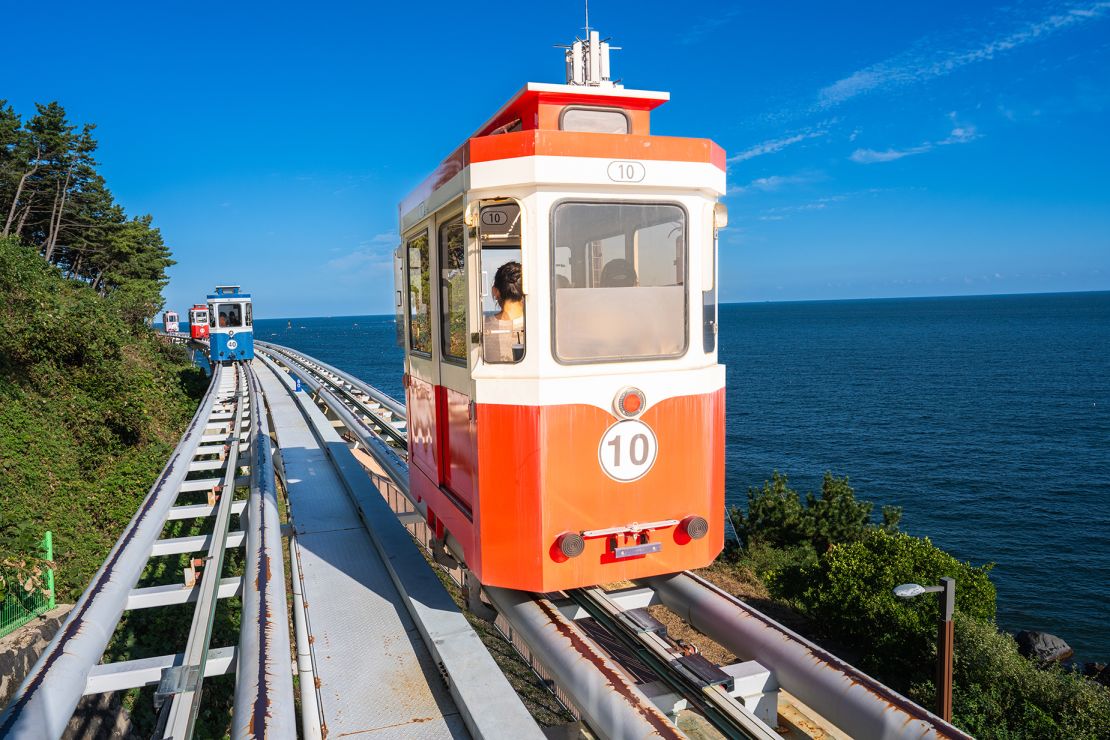
Start things off at Haeundae Beach, the city’s most iconic stretch of sand, where you can stroll next to the waves, sip a coffee, or sample local fish cakes at the legendary Georaesa Eomuk before heading up to BUSAN X the SKY.
This observatory occupies the top floors of the LCT Landmark Tower (the city’s highest structure), where you’ll marvel at the urban views and the azure expanse of the East Sea. If the weather’s nice, you just may be able to see the rise of Japan’s Tsushima Island in the distance.
From there it’s just a short walk to Blueline Park, the starting point for the Haeundae Sky Capsule. This personal elevated rail car allows you to cruise along the rocky, pine-blanketed edge of Dalmaji Hill while taking in the ample beauty of the shoreline.
It ends at the old fishing village of Cheongsapo, where you can sit down for a lunch of grilled scallops, shrimp, and other fresh seafood at one of the little restaurants near the harbor.
While Busan is a modern, high-tech hub, it’s also a treasure trove of historical sites and temples such as Haedong Yonggunsa.
Just a quick taxi ride from Cheongsapo, this scenic and serene Buddhist site sits perched on a rise above the surging sea and is a rarity in a country where most temples are found on mountains.
Slow down, breathe in the ocean air and wander its placid grounds to the soothing soundtrack of squawking seagulls and waves exploding on the rocks.
The new Busan
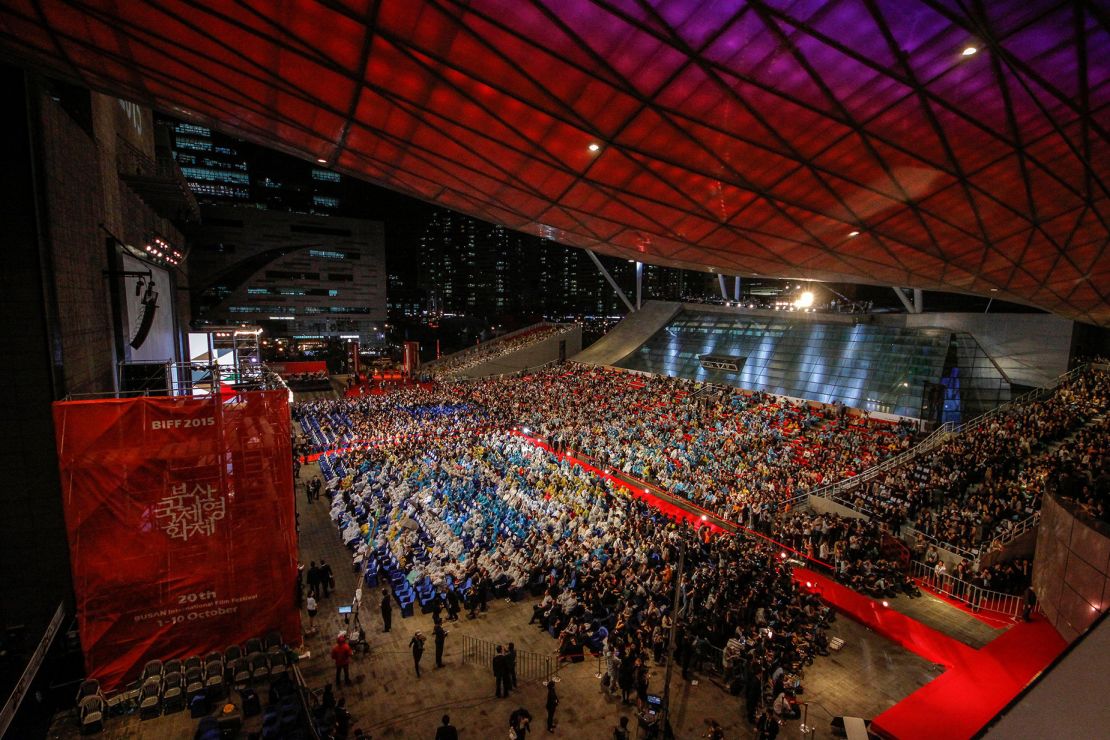
For a taste of the new Busan, shoot over to the gleaming cluster of high-rises known as Centum City.
There you can explore Shinsegae Department Store – the largest in the world according to the Guinness Book of World Records – before checking out the lustrous, architectural triumph of the Busan Cinema Center, the headquarters of the Busan International Film Festival.
While you’re in the neighborhood, make sure to stop by Museum 1, which specializes in multichromatic digital art installations.
Lose yourself in the mesmerizing, psychedelic wonders of the gallery before ambling back to Shinsegae for the quintessential Korean jimjilbang experience at Spaland, one of the city’s premier saunas.
Gwangalli and beyond
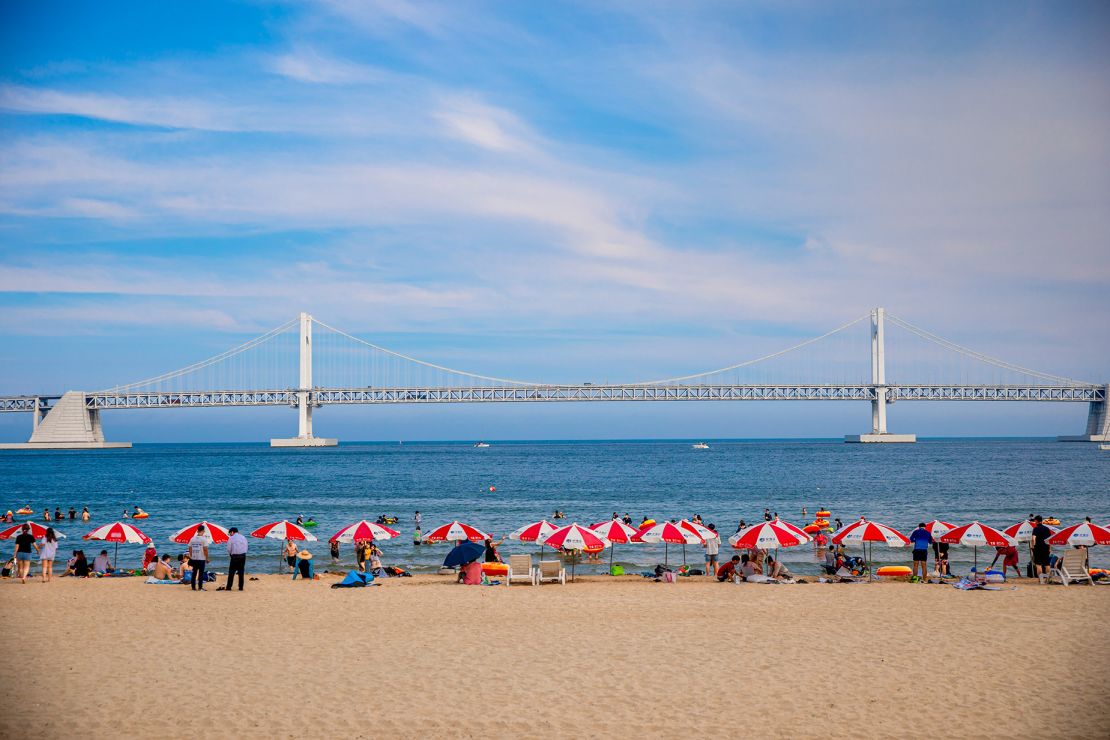
Centum City is just a couple stops on the subway from Gwangalli Beach, a happening strip of sand, cafes, bars and eateries looking out across the water to Busan’s iconic Gwangan Diamond Bridge.
In the summer, Gwangalli hosts a dazzling drone show every Saturday at 8 p.m., and the beach is also home to the Busan International Fireworks Festival, held in early November each year.
For a unique and adventurous experience, book a sunset SUP (standup paddle board) trip to the bridge and back with Crazy Surfers, who will supply everything you need for the unforgettable jaunt, including instruction in English.
Gwangalli is also home to some of the city’s best food and nightlife. Scratch your itch for Korean pork barbecue at Seorae, grab a slice of the city’s best pizza SOL Taphouse, or dive into a sashimi feast at the Millak Raw Fish Center, where you can peruse the tanks and point to your meal, which is sliced and served up on the spot.
For drinks, stop by the always-hopping HQ Bar with its super-friendly staff and million-dollar view of the bridge, or pop in for a cold pint at Galmaegi Brewing Company, one of the city’s original purveyors of craft beer. If it’s well-crafted cocktails in an intimate setting you’re after, check out Joseph, one of several chic new spots to sprout up in the neighborhood’s backstreets.
Nampo-Dong harbor district
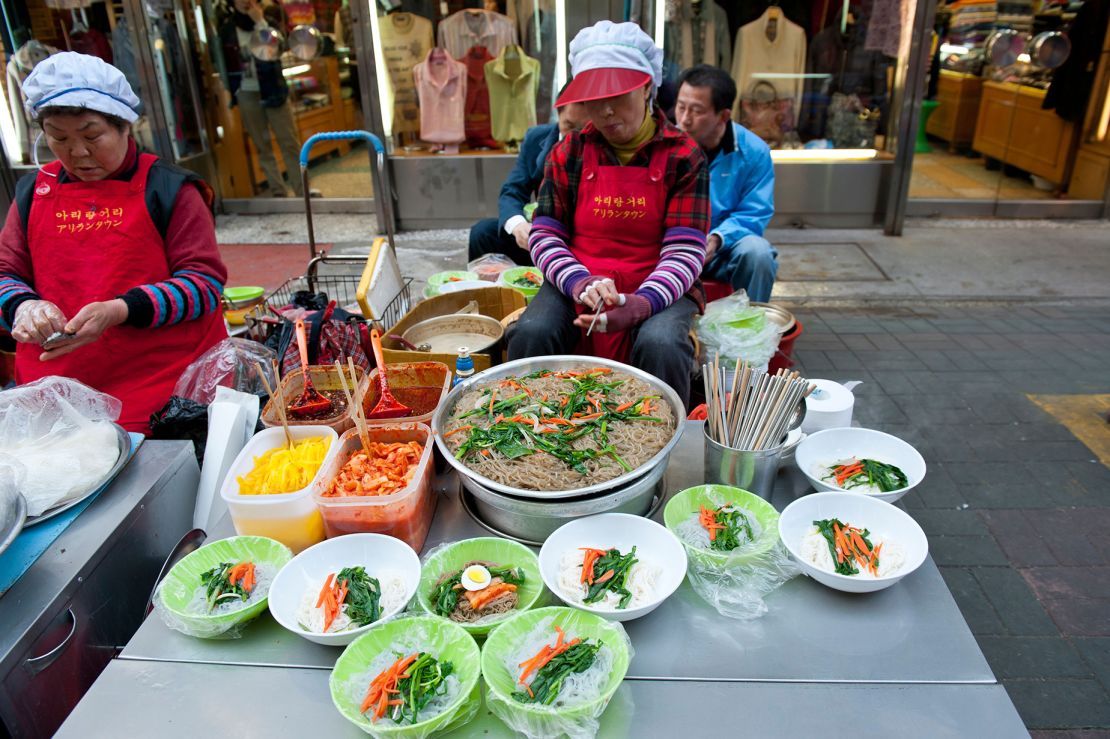
Busan is a port town, so to really understand its soul, you should head to the old harbor district of Nampo-dong. This is where you’ll find Jagalchi Market, the open-air seafood exchange that’s not only an intoxicating blast to the senses but also the city’s living, beating heart.
Meander along its concourse as you take in the scaly, finned and tentacled bounty of the sea, along with the gruff vendors who sell it all.
Jagalchi is also one of Busan’s best places to eat, and while there are endless opportunities to take your seafood raw, the market is home to a few choice joints that grill your fish over hot coals and serve it all up with an array of peppery and pungent side dishes.
Across from Jagalchi is the sprawling, maze-like complex of Gukje Market, the setting for the 2014 film, “Ode to My Father.” Stock up on K-pop schwag and other souvenirs, or get down with some noodles, pajeon (green onion pancakes), and Chungmu kimbap (seaweed rolls with spicy radish and squid) on the market’s famous food alley.
While you’re there, check out the used-book sellers on Bosu Book Street, and in the evening, hook yourself up with a bowl of Busan’s rich, savory, signature pork soup at Bukwang Dwaeji Gukbap, or grab a stool at one of Nampo’s many pojangmacha, the covered street carts that serve bottles of beer, soju and delectable side dishes whipped up by tough, older women.
These little tents pack everyone together in a way that encourages interaction, and are a welcome throwback to Busan’s more rough and tumble past.
Songdo and Yeongdo
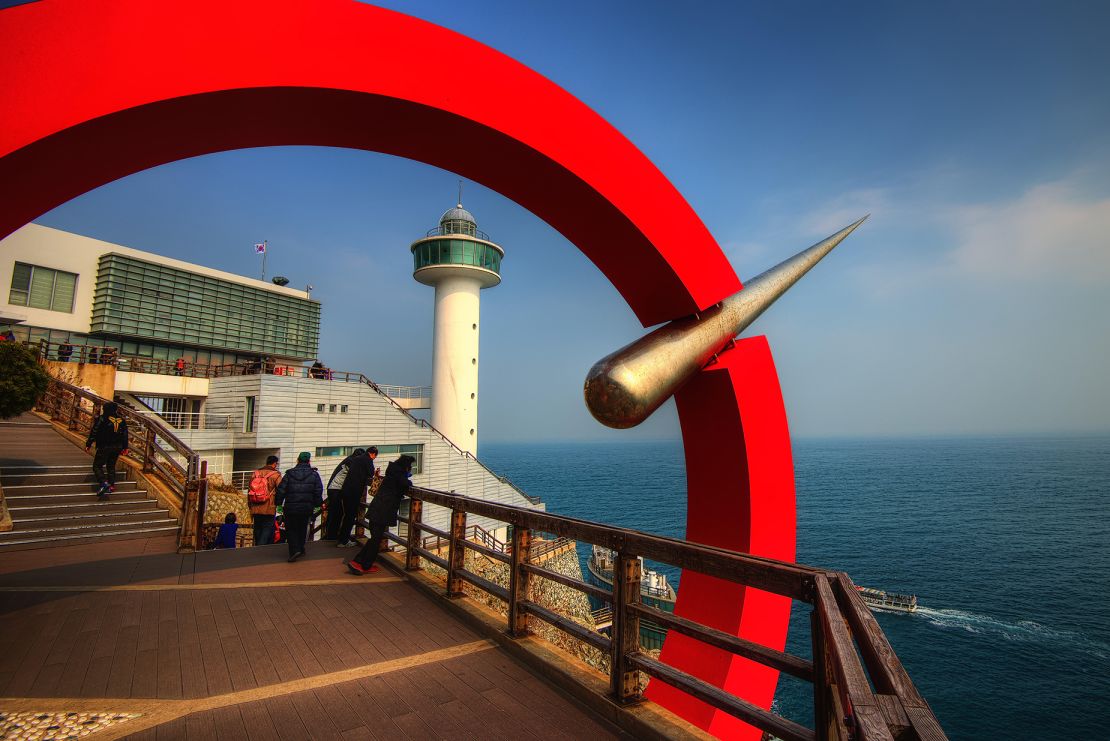
Just down the road is Busan’s first designated city beach – Songdo – with its popular cable car that whizzes high over the water to Amnam Park, offering unparalleled views of the city’s traditional core, along with the stony mountains and deep turquoise waters that make it such a photogenic place.
From Songdo it’s just a quick cab over the Namhang Bridge to Yeongdo Island, home to some of Busan’s oldest neighborhoods, including the Huinnyeoul Culture Village. Nestled atop a bluff overlooking the water, this cluster of tiny white, blue and aquamarine houses is arguably the most romantic spot in town, as well as an Instagrammer’s dream.
While you’re in Yeongdo, make sure to stop by Momo’s Coffee, a spacious cafe and roastery whose co-owner, Jooyeon Jeon, won the 2019 World Barista Championship. Not only is Momo’s famous for its expertly crafted espresso drinks, but is also worth a visit just for the building’s smart and elegant design.
Yeongdo itself is renowned for its rugged, natural beauty, which reaches a point of perfection in Taejongdae. This must-visit park on the island’s southern tip is made up of thick pine forests, sheer cliffs and massive rocky outcroppings that stretch and crumble into the foamy ocean waves.
It’s the perfect place to take a stroll and clear your head while the sun’s rays glimmer on the surface of the sea. As you take it all in, you just may forget that you’re in the middle of a modern, bustling city that also happens to be one of East Asia’s most underrated gems.
Take the train to Busan – or a plane
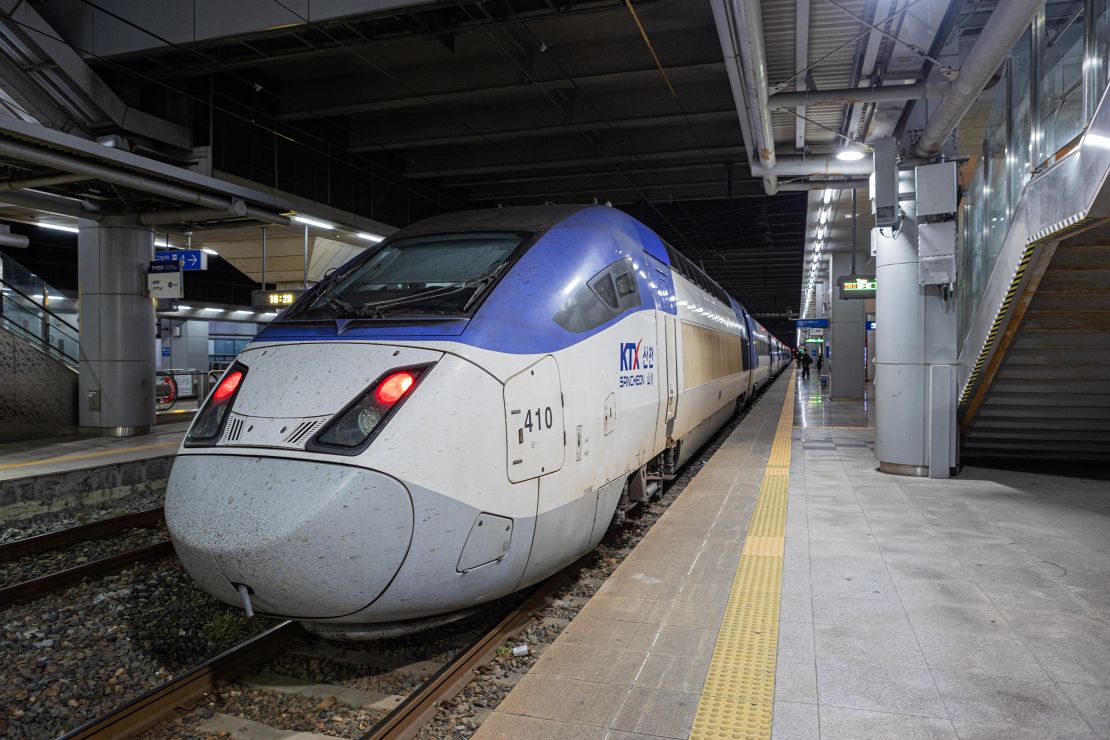
There are several easy options for getting to Busan. The city is linked to Seoul by the KTX high-speed train, which takes around two and a half hours.
Direct flights to Busan’s Gimhae International Airport from Seoul’s Incheon or Gimpo airports are just an hour.
While the city is served by direct international flights from some Asian countries, longer international routes will almost always go through Incheon International Airport.
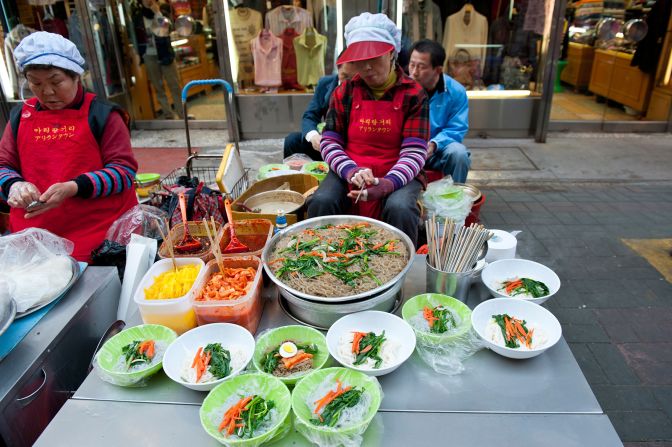
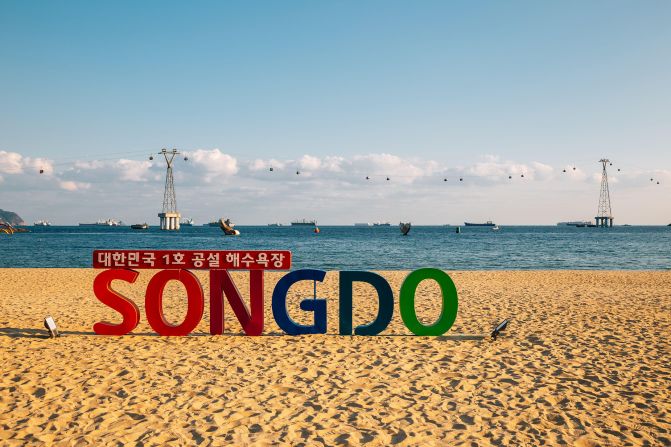
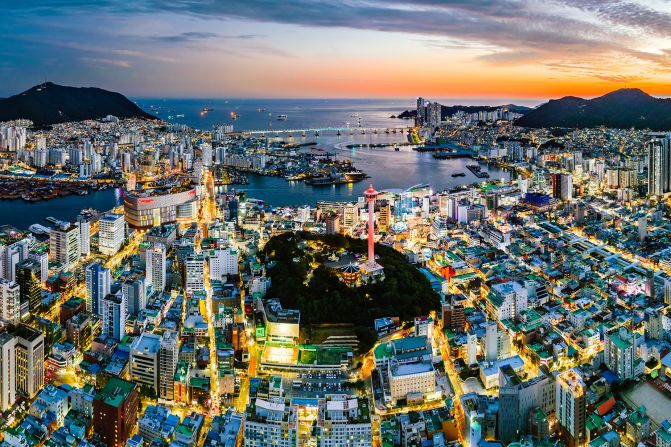
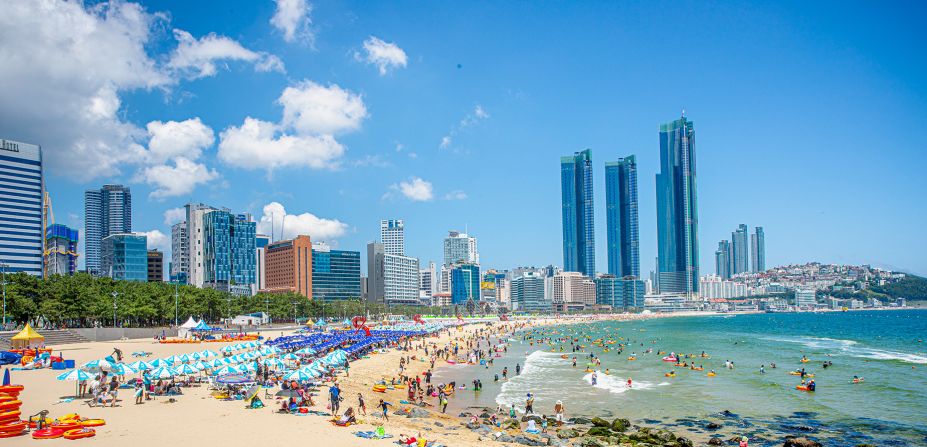
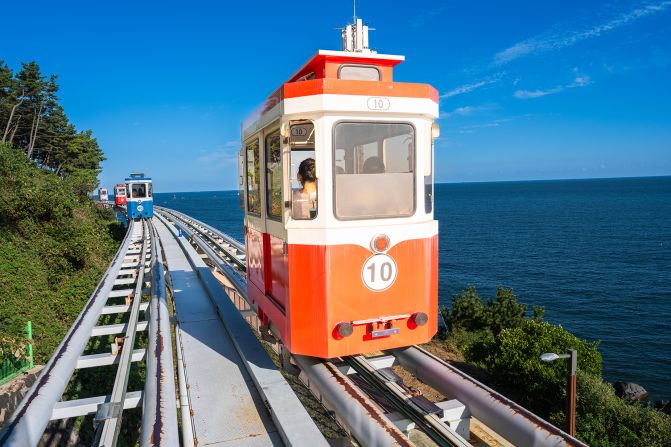
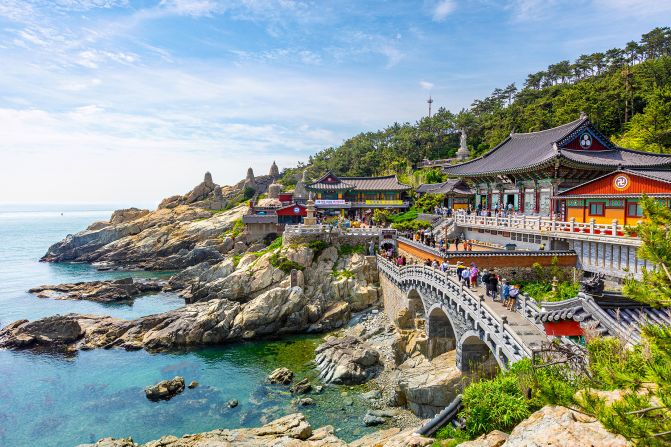
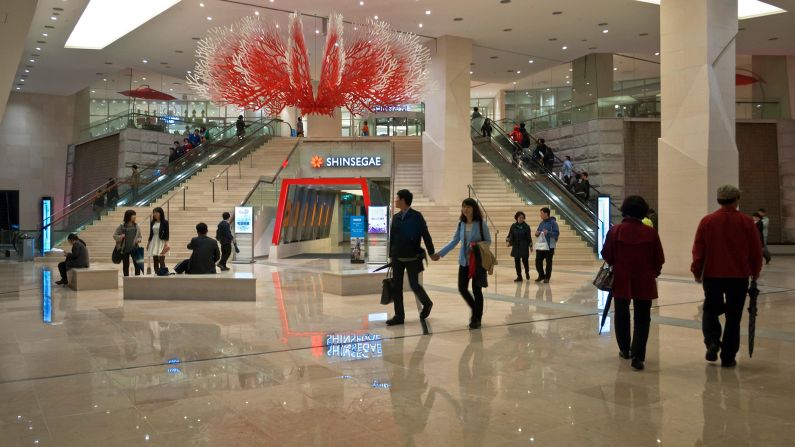
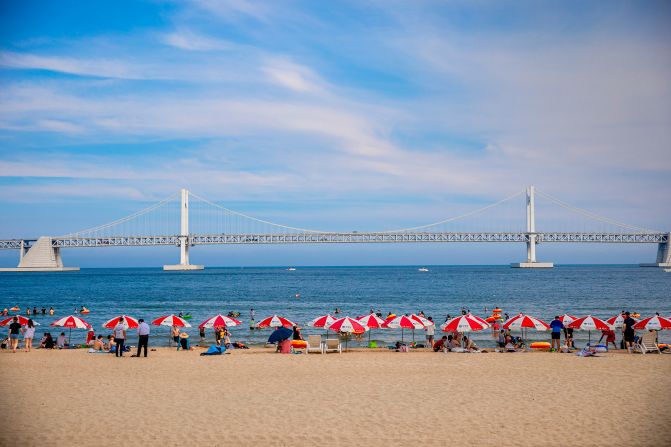
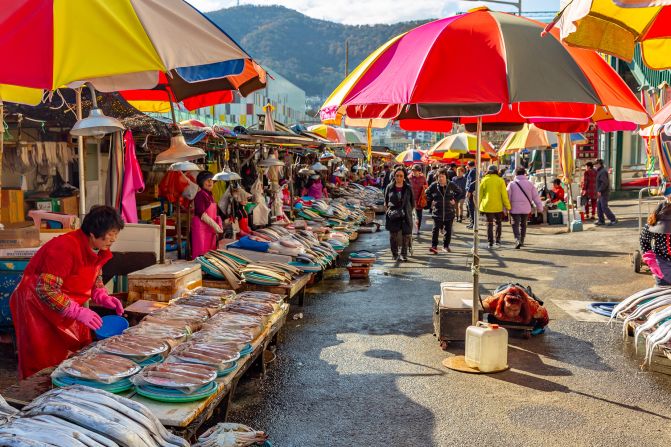
No comments:
Post a Comment